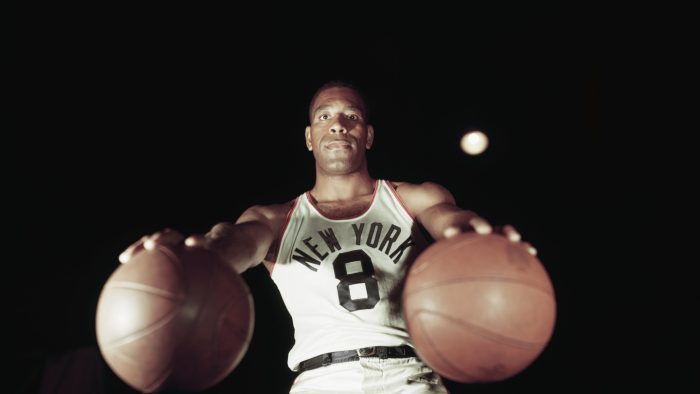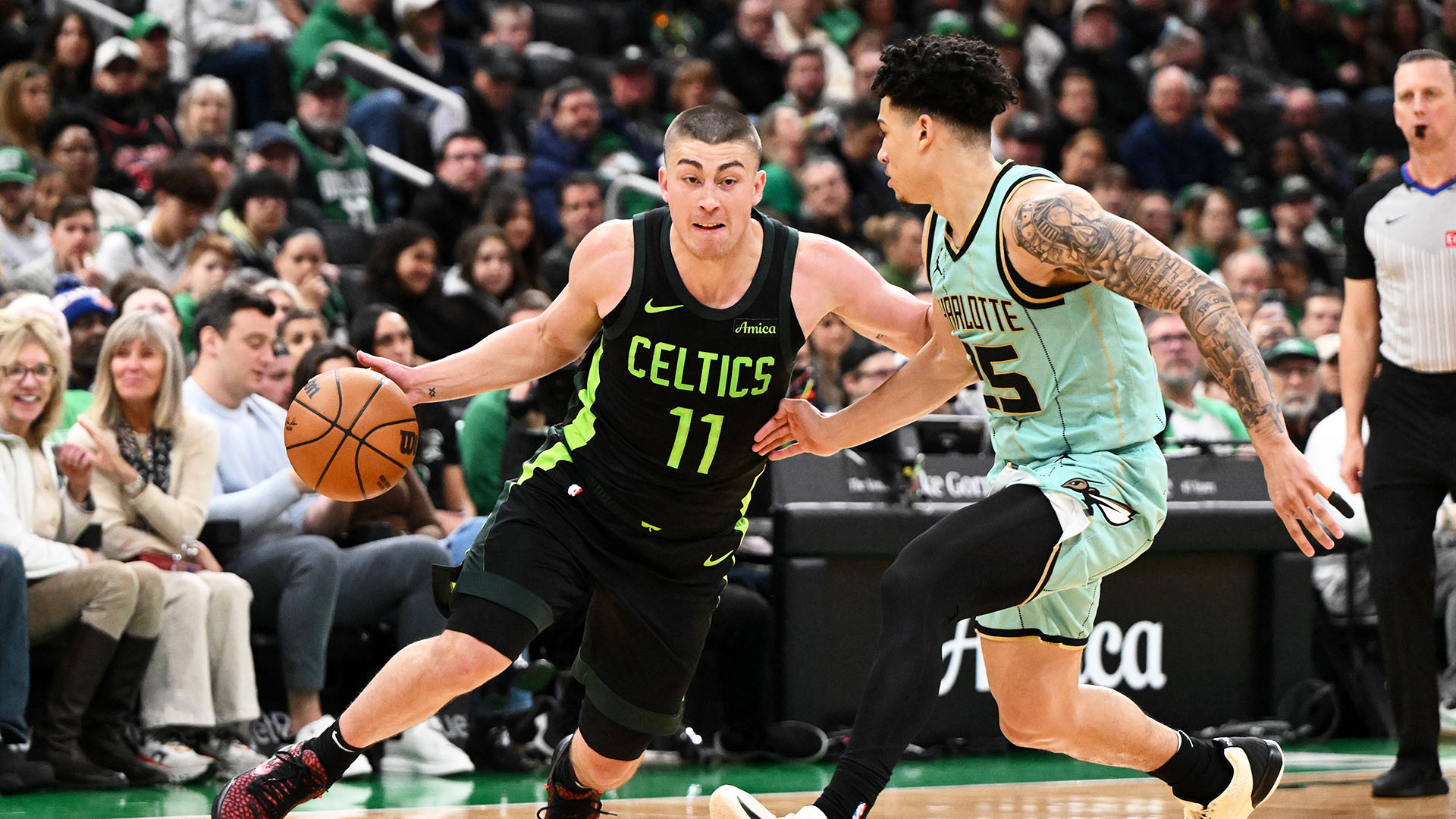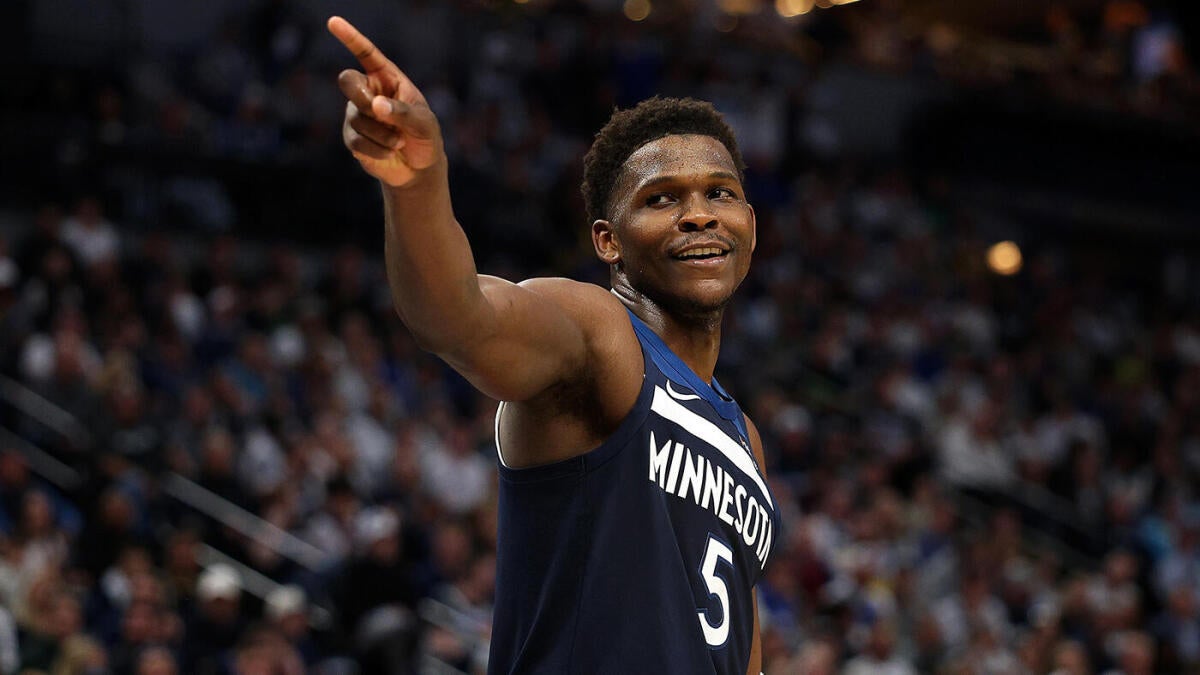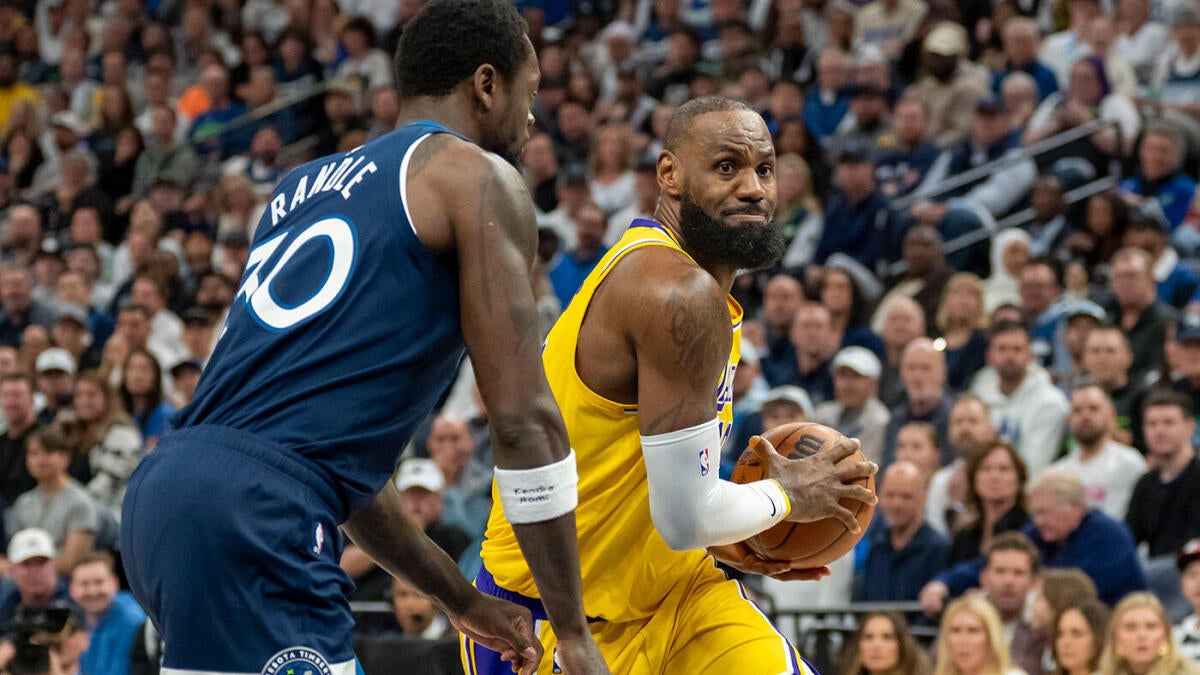The NBA and the National Basketball Players Association hope to make their first African American pioneers — Nat “Sweetwater” Clifton, Chuck Cooper and Earl Lloyd — household names amongst their teams, players and all NBA fans just like Jackie Robinson is with Major League Baseball.
The NBA plans to celebrate the anniversary of the drafting of the first African Americans in league history on April 25, 1950, starting with the 75-year anniversary today. There are also talks of the NBA honoring all three annually during Black History Month starting next season.
“I am excited about the fact that we are going to honor the legacy, the courage and determination of these pioneers and also many players that have come after them,” NBPA president and New Orleans Pelicans guard CJ McCollum told Andscape. “But it starts with them and how they transformed the NBA and how they inspired players like myself. They faced a lot of extremely difficult challenges from racism to discrimination. But they showed tremendous resolve to overcome these obstacles and still figure out a way to perform at a high level.
“Looking at the impact Black players have had on the NBA, what they have been able to do off the floor was inspire social change and a greater sense of community amongst fans. That is something that should be celebrated as well.”

Dick Raphael/NBAE via Getty Images
Clifton became the first African American to have an NBA contract as his was purchased from the Harlem Globetrotters by the New York Knicks in May of 1950. The Boston Celtics drafted the first Black player in Cooper with the 13th overall selection in the second round of the 1950 NBA draft. The Washington Capitals drafted Lloyd with the 101st overall pick in the ninth round of that draft. Clifton, Cooper and Lloyd also became the first Black players to play in NBA games during the 1950-51 season with Lloyd playing first due to a scheduling quirk.
Starting today, the NBPA will release three videos on social and digital platforms celebrating Clifton, Cooper and Lloyd. In the respective videos, Celtics guard Jaylen Brown will discuss the impact of Cooper, Golden State Warriors guard Stephen Curry talks about the influence Lloyd had on him, and New York Knicks forward Karl-Anthony Towns reflects on Clifton. Throughout the upcoming 2025-26 season, the NBA will honor the legacy, courage and determination of the three pioneers who transformed the league and inspired countless individuals. The NBA also plans to host various events and recognitions, including tributes of all three during games and tentpole events, educational programming and activities in their respective communities.
The children of Clifton, Cooper and Lloyd hope that it will soon be commonplace that the stories of their fathers will be known by all NBA players. With the three pioneers no longer with us, Chuck Cooper III, Kevin Lloyd and Clifton’s daughter, Jataun Robinson, will be representing their fathers as they are honored next season.
“We are connected at the hip just like my father, Chuck Cooper and Sweetwater Clifton were,” Kevin Lloyd told Andscape. “I tell folks all the time, even though my father was first to play, they all reached that door at the same time and walked through the door together. And if you hear my father’s speech when he went into the Hall of Fame, the first thing he said, man, ‘I will be remiss not to mention Chuck Cooper and Nat Clifton…’ My father was the first one to go into the Hall of Fame, but my father’s mindset was that they all went in together.”
Cooper III said he bonded with Lloyd and Robinson after all three were honored by the Cleveland Cavaliers on their fathers’ behalf on Feb. 3, 2018. The children spoke several times in person and on phone calls to figure out a way to get the NBA to honor their fathers annually. All three said they hope their fathers’ jersey numbers can be honored similarly to Jackie Robinson — the first African American in Major League Baseball history whose No. 42 is retired by every team.
“There was a constant trigger of effort to make sure that these pioneers’ stories were told,” Chuck Cooper III told Ansdscape. “So, myself, Kevin Lloyd and Jatuan Robinson, we’ve been working with the NBA and doing what we can to make sure that we were heard. And they listened and they’re telling our stories and I couldn’t be more proud and I couldn’t be more honored.”

NBAE Photos/ NBAE/Getty Images
Lloyd is perhaps the most well-known of the three as the first African American to play in an NBA game on Oct. 31, 1950, due to a scheduling quirk when Washington played at Syracuse. The nine-year NBA veteran averaged 8.6 points and 6.4 rebounds per game as a member of the Capitols, Syracuse Nationals and Detroit Pistons. The former HBCU West Virginia State star played for the 1955 NBA champion Nationals, averaging a career-best 10.2 points that season. He joined Jim Tucker as the first Black players on a title team. Lloyd also became of the NBA’s first Black coaches with the Pistons. He was named to the Hall of Fame in 2003 and died at 86 years old in 2015.
“In my father’s mind, it was incredible for him, a good feeling from where he came from to where he went,” Kevin Lloyd said.” My father came from the projects in Valley County, Virginia, to the Hall of Fame and that says something by itself. Getting drafted, playing in the NBA, all three of them being honored by the NBA, it was a major, major accomplishment.”
Celtics owner Walter Brown famously said it didn’t matter if Cooper was “striped, plaid, or polka dot” as he was more worried about his talent than his race. The former Duquesne University star averaged 6.7 points and 5.9 rebounds per game during six NBA seasons with the Celtics, St. Louis Hawks and Fort Wayne Pistons. Cooper died at 57 years old in 1984 of liver cancer and was inducted into the Hall of Fame posthumously in 2019.
“My father was an incredibly confident basketball player coming out of Duquesne University,” Cooper III said. “He didn’t want to just make the Celtics team. He saw the rise of the great organization and knew that he played a role in changing the culture. In my father’s rookie year, he was named to the All-Rookie team. So, he became the first African American named to an All-Rookie team. But they changed the culture and that was the Celtics’ first winning season.
“And the Celtics never looked back when they kept winning and ran off eight [titles] in a row. So, I think what he was most proud of is that he helped establish the culture for the Boston Celtics organization, and to see them make that incredible run he was extremely proud of that.”
Clifton played for the all-black New York Rens and Globetrotters, which included playing with Clifton, before his contract was acquired by the Knicks. The 6-foot-6 forward averaged 10.9 points and 8.2 rebounds per game during eight NBA seasons and was an All-Star in 1957. In 1958, Clifton left the NBA to play baseball in the Negro Leagues for the Detroit Stars. In 1961, he played his last season of professional basketball with the Chicago Majors of the American Basketball League.
“He said he didn’t make much money with the Globetrotters, and he thought that he would make more money playing for the Knicks,” Robinson said. “And then he really was hesitant about doing it. So, he decided that he would just do it for the sake of breaking the barrier because he had been encouraged by some people who wanted them to move up and do things.”
The former Xavier University (La.) star went on to become a cab driver in Chicago. He died at age 67 in 1990 and was posthumously inducted into the Hall of Fame in 2015.
During the Hall of Fame ceremony, Robinson spoke on her father’s behalf saying, “It’s truly an honor and it’s about time.” A movie called “Sweetwater” telling Clifton’s story was released in 2023.
“I’m glad that the NBA is honoring him because he felt like he wasn’t appreciated or he didn’t like his time there,” Robinson said. “He liked the people that he played with. He liked the coaches and all of that. But he said it didn’t work out. He said when he did sign to get some money, he had to give it up for taxes and stuff and he didn’t know that.
“So, he was a little disappointed in that and it was different things that he didn’t care for. So, honoring him like this would have made him feel better about it had he been alive to see this happen.”



